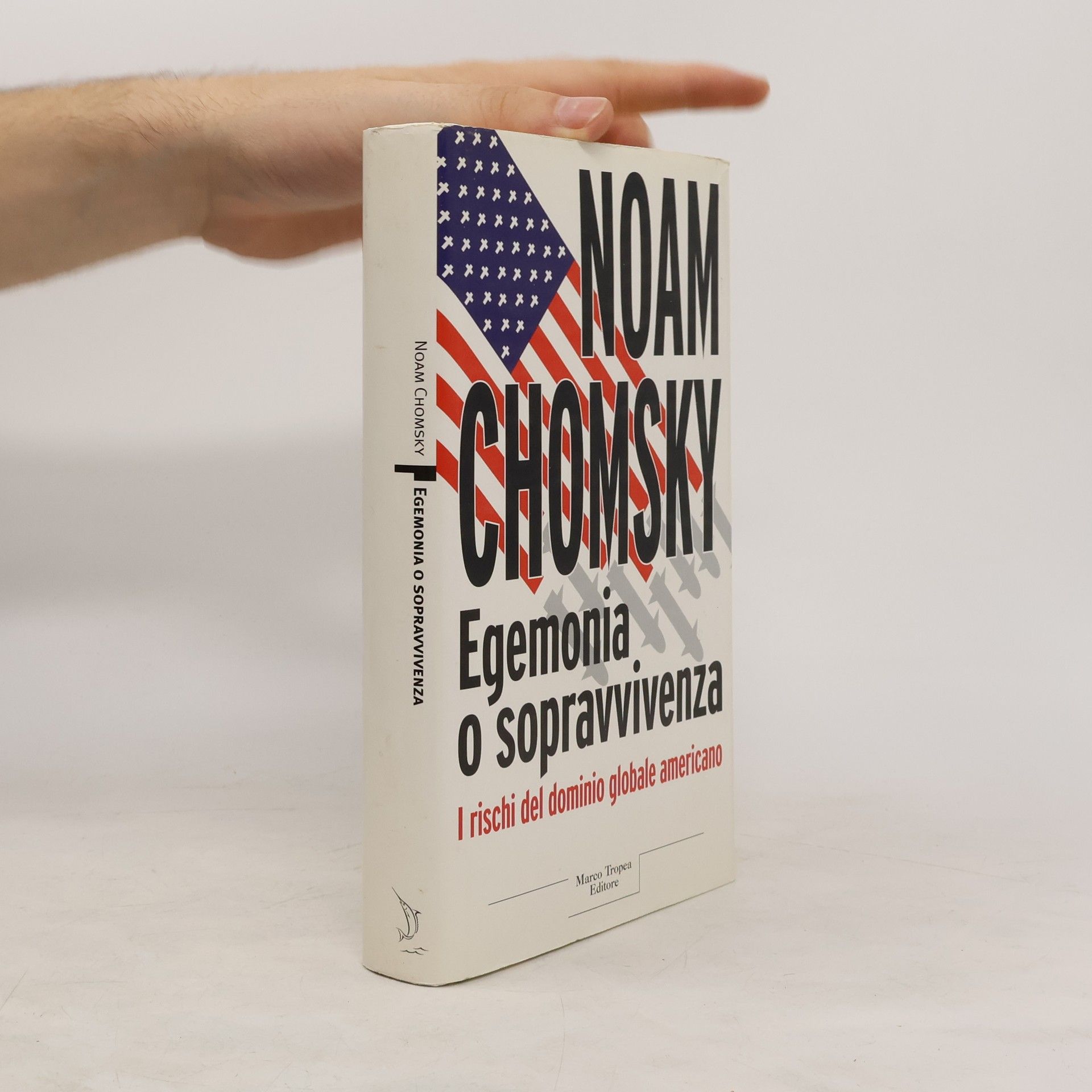Il terrorismo degli Stati Uniti contro Cuba
- 266pagine
- 10 ore di lettura
Avram Noam Chomsky è una figura centrale nella linguistica e nella filosofia, accreditato per aver rivoluzionato il campo attraverso la sua teoria della grammatica generativa. Il suo lavoro ha anche stimolato la rivoluzione cognitiva nella psicologia e ha profondamente influenzato la filosofia del linguaggio e della mente con il suo approccio naturalistico. Oltre ai suoi contributi accademici, Chomsky è ampiamente riconosciuto per il suo attivismo politico e le sue acute critiche alle politiche estere dei governi, affermandosi come uno degli studiosi più citati.







In un paese democratico l’indipendenza e la libertà di espressione dovrebbero essere le qualità portanti dei giornali e di tutti i media. la realtà è però un’altra: sono le forza politiche ed economiche a decidere quali notizie dovranno raggiungere il pubblico, e in che modo. Noam Chomsky e Edward S. Herman svelano come, grazie alla manipolazione delle notizie, l’opinione pubblica viene spinta a sostenere determinati interessi e punti di vista. La fabbrica del consenso offre un’analisi precisa su quanto siano veramente strumentalizzati i media statunitensi e fornisce la chiave per interpretarne i messaggi.
Through three separate essays, this book provides an in-depth analysis of U.S.-Arab relations, the contradictions and consequences of U.S. foreign policy toward "rogue states, " and how hostile American actions abroad conflict with U.N. resolutions and international law.Noam Chomsky compares U.S. foreign policy to that of the "rogue states" which the United States identifies as Its enemies. Ramsey Clark argues that U.S. sanctions and military actions against Iraq are indefensible, and in violation of the Universal Declaration of Human Rights.
Per oltre mezzo secolo - sostiene l'autore - gli Stati Uniti hanno perseguito una strategia imperialista mirata al controllo di tutto il pianeta. I leader politici americani si sono sempre dimostrati desiderosi di realizzare questo sogno di dominio, indipendentemente dai rischi che comportava, e l'attuale amministrazione Bush sta intensificando questo processo. Prendendo le mosse dai princìpi e dalle finalità della politica internazionale americana, Noam Chomsky analizza eventi politici cruciali degli ultimi decenni: dall'Indonesia al Kosovo, dalla Colombia alla Turchia, dalla Palestina al Nicaragua, da Cuba all'Iraq, Chomsky si addentra in conflitti e delicate questioni internazionali.
Il mattino del 12 settembre i quotidiani del mondo intero titolano in tutte le lingue: "Attacco all'America". Un messaggio la cui forza sconvolgente non è dovuta soltanto all'entità della sciagura, ma anche alla novità assoluta dell'attentato al World Trade Center e al Pentagono. Questo libro raccoglie gli interventi di Noam Chomsky nel mese successivo a quel martedì. Si può vincere il terrorismo? Chi è il nemico che ha lanciato l'attacco? A queste domande e a molte altre l'autore risponde scansando le interpretazioni troppo semplicistiche che sono state avanzate, su fronti opposti, nelle stesse settimane. Chomsky propone una visione complessa dei rapporti fra America, Europa e Oriente, ricordandoci eventi del passato.
An indispensable collection of lectures on the politic of power from the world's leading philosopher, linguist and critic, and author of the bestselling Who Rules the WorldNoam Chomsky is universally accepted as one of the pre-eminent public intellectuals of the modern era. schovat popis